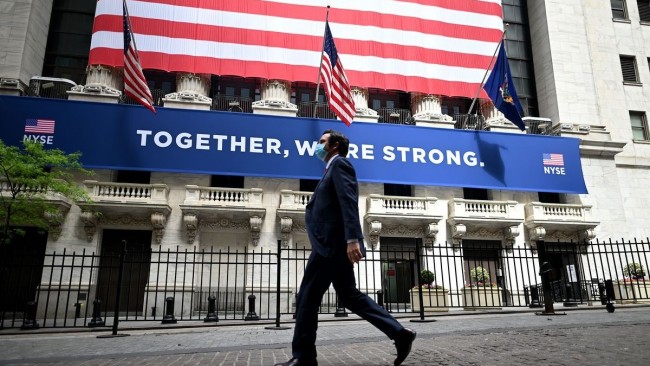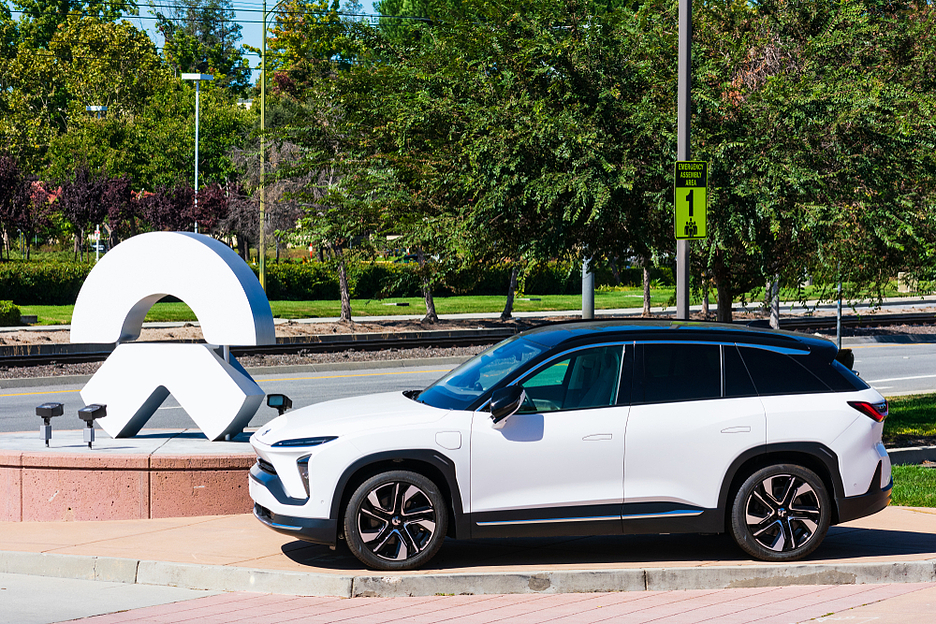Main US stock indexes fell by 5-7% on Thursday, after fed officials gave investors a signal that the US economy will not recover too rapidly. In 21 States reported an increase in the incidence of COVID-19. The price of the main grades of crude oil fell.

A sharp drop in the U.S. stock market on Thursday, many analysts called “sobering.” After the statements of fed Chairman investors have realized that it is not necessary to hope for a sharp (V-shaped) growth of the US economy in the near future, given the force of impact of the pandemic and the continuing risks of a second wave of morbidity COVID-19.
At the close of trading on Thursday the Dow Jones Industrial Average fell 6.9 percent, the S&P 500 by 5.89%, the Nasdaq Composite index by 5.27%. The largest drop was observed in the banking and energy sector.
Shares of the largest U.S. banks sharply and fell heavily, as the preservation of the fed’s zero interest rates is not good for them.
Energy companies fell due to the fall in oil prices due to renewed concerns over demand and a significant increase in oil reserves in the United States. The popular Brent crude fell by 2.49% to $37,59 per barrel.
CBOE volatility index which is regarded as a “fear indicator” on wall Street on Thursday showed the biggest one-day increase since March 16. Trading volume on the market also rose.
The decline of the U.S. stock market affected the global markets of Europe and Asia. The largest European Stoxx Europe 600 index retreated 4.1%, Chinese, Japanese, and Korean major indexes also declined.
The fed says “not so fast”
The Federal Reserve System (FRS) the USA on Wednesday after two days of the planned meeting came to an unexpected decision to maintain benchmark interest rates at 0% -0.25% to 2022. Read more in the article Marketinfo.pro “the fed maintains zero rates until 2022 and provides growth forecasts of the U.S. economy.”
Fed officials noted a number of improvements in economic data and given the forecasts of gradual growth for the next 4 years, but referred to the “extraordinary uncertainty” in connection with COVID-19.
The fed Chairman Jerome Powell warned of a “long road” to recovery of the US economy.
In addition, recent data on the incidence COVID-19 showed that the pandemic in the United States still has not been defeated in 21 States have recorded an increase of detections of coronavirus.
In new Mexico, Utah, Texas and Arizona a number of cases of detection COVID-19 increased by 40% in the week ending Sunday. Bad statistics in Florida and Arkansas.
The news has raised the level of concern about a second wave of the pandemic and the termination of measures easing in the United States. Some experts said that the authorities went too early on measures to ease restrictions imposed to curb the spread of the pandemic.
The “peak growth of the market”
Some analysts welcomed the news as a signal that the market growth has reached its “peak” at the moment.
“The idea that COVID-19 is defeated, or us, V-shaped recovery was driven today,” said Steve Sosnick, chief strategist at Interactive Brokers in Greenwich, Connecticut.
“In fact, it makes no sense to buy,” said Paul Nolte, a portfolio Manager at Kingsview Asset Management in Chicago. Tim Gryski, chief investment strategist at Inverness Counsel in new York, agreed, saying: “There is a fear that we are at the peak”.
“Chairman Powell “poured a bucket of cold water” for investors who believe that in the near future the economy will return to where it was in 2019,” said Matt Maley, chief market strategist at Miller Tabak, the firm’s asset management. He added that the market is in any case “ripe for a pullback”.
“Keeping interest rates by the fed until 2022, probably, have created the investors the impression that the fed may be more concerned about the pace of economic recovery than originally anticipated,” said Joseph Term, investment Director NovaPoint in Atlanta.
At the same time, experts say that there are no preconditions to the market fall to levels of February or March, as the government allocates huge sums to support the economy and lending to the population.
On Thursday, the US Treasury Secretary Steven Mnuchin said the United States “can’t afford pandemic again to close the economy,” adding that in the next month in the country’s economy received more than $1 trillion.








